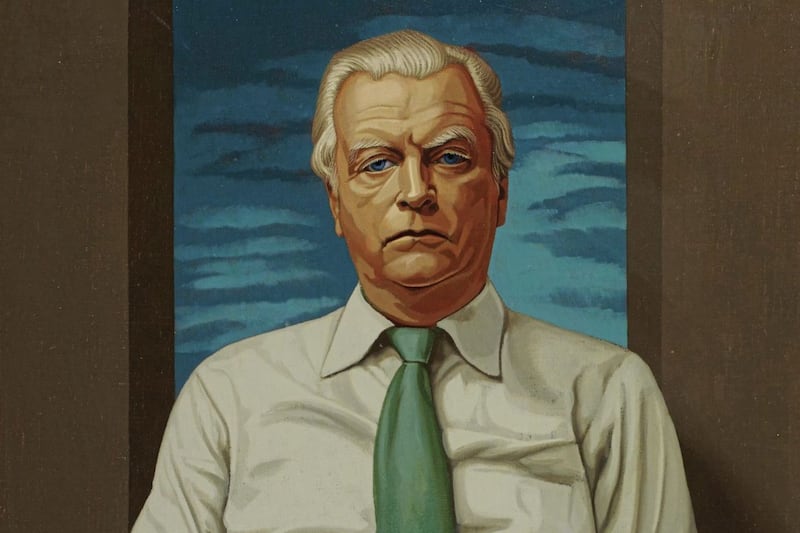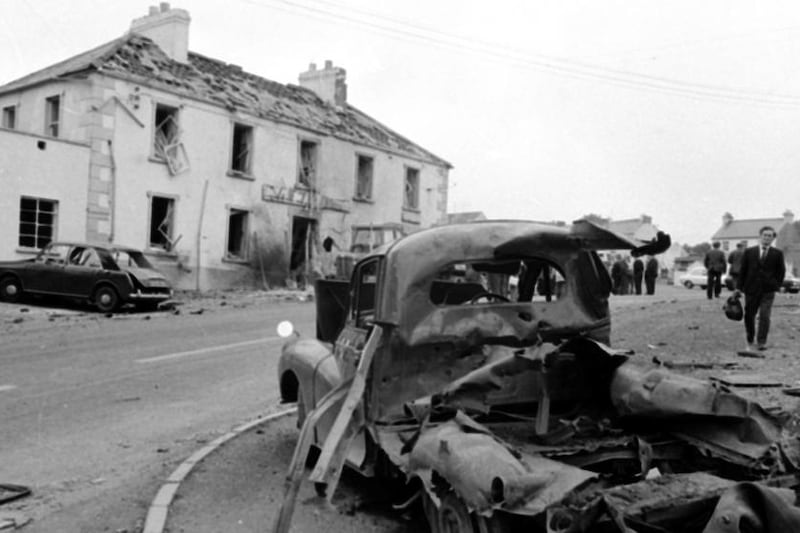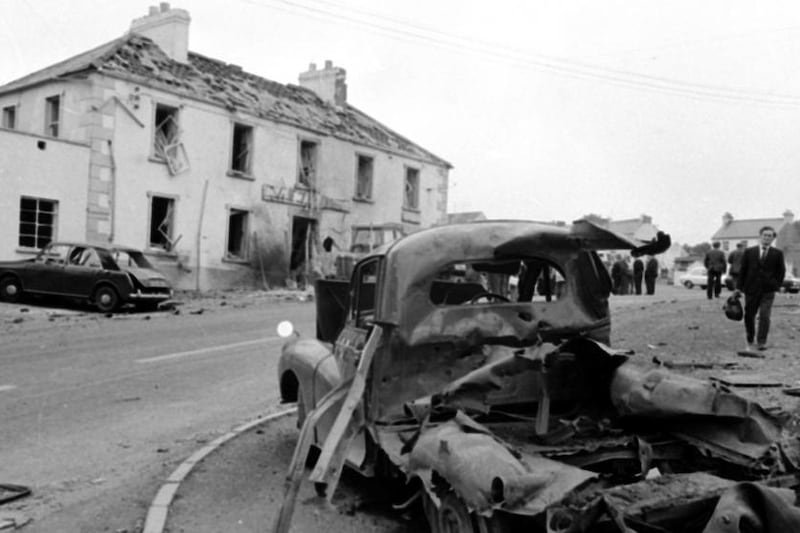MANY authors appear to go through a period of being all but forgotten just before their revivals. Such a fate seems to have befallen Benedict Kiely, the Bard of Omagh, who combined a copious amount writing with academia and broadcasting, the centenary of whose birth is tomorrow.
Kiely's novel Nothing Happens In Carmincross is reckoned by some to be one of the best works of fiction to have come out of the Troubles, along with his classic novella Proxopera, about a rural family held hostage by an IRA gang while an elderly man is forced to drive a car bomb to a nearby town.
But there is delight to be found in his writing as far back as his first story collection, A Journey To The Seven Streams (1963) with its cameos and vignettes of places and people he knew well and lines like: "In Tattysallagh, said my father, they were always an uncivilised crowd of gulpins."
Or, indeed, the "real nice people in Clanabogan. Not one of them said a word to me."
Overall there are 10 Benedict Kiely novels and four collections of short stories, as well as essays, two full volumes of memoirs and criticism. Yet his prolific writings seem to have eluded serious critical consideration, with a widespread feeling that Kiely has not had the recognition he deserves.
Part of that gap is now being filled by a new book of essays called In A Harbour Green, published by Irish Academic Press "in celebration and commemoration" of Kiely, to mark the centenary of the man one profile described as "born to be mild" – a man who, though a pioneer in many ways, might even in the 1960s have answered his door in his pyjamas.
One negative charge against him was a tendency to retreat to familiar ground but his first set of memoirs, Drink To The Bird (Methuen) pointedly asked whether a septugenarian with eight grandchildren might "I repeat, may occasionally be permitted to repeat himself."
And another essay admitted "if always through life I was low on strategy, I was a smart tactician". Indeed.
One of the key contributors to the book, the author and critic Patricia Craig, says she believed Kiely became slightly neglected in recent years with the abundance of new Irish writers coming to the fore.
"No-one else I know incorporates quotation so smoothly and productively into their fiction. I would place him alongside his near contemporaries [Seán] Ó Faoláin and [Frank] O'Connor in one direction, William Trevor and Edna O'Brien in the other, slightly younger.
"Because he spent so much of his life in Dublin, it's often forgotten he was a northerner but he never forgot his birthplace, Omagh, and remained all his life under the spell of the place names of Tyrone."
The Belfast-born poet Gerald Dawe, another contributor to the publication, says that Kiely's works exude "a strong sense of the worth of Irish life and literature" and that he was someone who "maintained the value of being a writer in difficult social and political circumstances".
The works mention the deaths of 18 soldiers at Narrow Water and the boat bombing in Mullaghmore, Co Sligo, in which the IRA killed Lord Mountbatten and two other people, along with the death of Pomeroy man Dan McElhone, shot dead by the British army.
Perhaps echoing the phrase of 1960s Stormont Premier Terence O'Neill, Kiely often employed the image of a crossroads. San Francisco, he said, is a "mighty fine crossroads" while, about the violence at home: "There will be a need for many prayers at many crossroads."
Nonetheless Dawe, Emeritus Professor of English at Trinity College Dublin, concurs that Kiely may have been overlooked. "But this is the nature of liteary history. Fashions come and go, but quality will always resurface. In the Ireland of his time it was almost impossible to make a living from writing alone," he says.
Kiely taught in Oregon, Virginia and Georgia in the United States, a journey traced by the travel writer Paul Clements in another essay in the book, but also became very well known, particularly in the Republic, as a 'voice' on RTÉ.
As Dawe tells me: "In fact Ben Kiely became his voice in a way, the sonorous northern tone so well known maybe people forgot he was actually a writer. He had a certain celebrity."
Former senior BBC journalist Clements also does not go along with the thinking that Kiely is almost forgotten.
"Mark Twain once defined literary immortality as about 30 to 35 years, and said that after their deaths, it is the fate of most writers to become forgotten – but I don't believe this has happened to Ben Kiely," he argues.
"Firstly many of his books are still in print and available online or in second-hand bookshops and several of his titles have been reprinted in the last few years by Turnpike Books in London."
In fact Turnpike has come up trumps for the centenary with another new publication of three of Kiely's best short stories, titled Down Then By Derry, the title story being one of his short stories about the Troubles, but the collection also including arguably his most popular story, A Ball Of Malt And Madame Butterfly, in which the main character is an endearing prostitute. Newcomers could do worse for a starting point.
Next month Omagh library is hosting a two-day festival to honour Kiely who has a special place in Clements's heart as a man born in nearby Augher and who will be among those contributing to the festival.
"Kiely was a regular visitor to the hill of Knockmany, north of Augher, which I knew well as a youngster. I started reading his novels and short stories when I began working as a journalist in the Tyrone Constitution. I especially enjoyed his ability to weave a huge amount of detail into his stories," he says.
An interactive multimedia art exhibition will also focus on the centenary of the writer's birth, opening on Friday October 4 for four weeks.
Festival chairperson Margaret Geelan says the display will include Irish books published with references to Kiely's works and his life, along with some art work. Special guests will also include the author Mary Kenny, who worked as a journalist with Kiely for a time.
:: In A Harbour Green: Celebrating Benedict Kiely, edited by George O'Brien, is published by Irish Academic Press, priced £18.99 (hardcover). Down Then By Derry by Benedict Kiely is republished by Turnpike Books, priced £5. Both available now.




